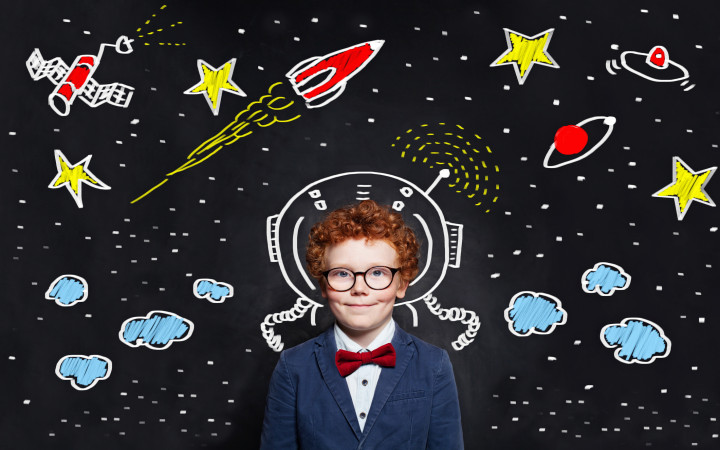Today’s Wonder of the Day was inspired by Kylie. Kylie Wonders, “What is it like to live on the International Space Station? ” Thanks for WONDERing with us, Kylie!
Have you ever dreamed of traveling in space? For many kids, gazing at the stars leads to daydreams about what it would be like to be an astronaut. Would you like to travel on a spaceship? Just think about how awesome it would be to set foot on the moon or another planet!
Of course, becoming an astronaut isn't easy. There aren't many astronauts in the world, so you have to be very skilled in a number of different areas. Astronauts have special combinations of skills that make them suitable to be traveling scientists beyond Earth.
Although it sounds like it would be great fun to travel to outer space, it would be a lot of work, too. Traveling to outer space takes lots and lots of preparation. Everything has to be planned carefully in advance. Why? Because once you leave Earth's surface, you're on your own with what you have in your spaceship. There's no store to go to in space!
Once you are in space, nothing can come on board the ship and practically nothing can go out. You must take everything you need to survive into outer space with you. Let's call these items “inputs." Inputs might include necessities such as food, water and oxygen.
Now let's talk about “outputs." Every input creates an output. Let's say you open a box of Coco Comets cereal for breakfast. What will you do with the box when it is empty? You only have so much room to store outputs on your spaceship. Every piece of garbage you create while on tour will stay on the ship with you. Where will you store the garbage? Can you think of a way to reduce the amount of waste output you create during your time in space?
In order to survive, you must eat and drink. This means your body will also process those food and water inputs and output them in the form of solid and liquid waste. Since nothing can leave the spaceship, you will need to think of a way to handle these bodily wastes. On Earth, we simply flush a toilet, but what happens after our bodily output leaves our homes and enters the sewer systems? Where does it go? It might seem icky, but this is an important question.
Even breathing creates an output — carbon dioxide! Can you think of a way to filter the carbon dioxide from your spaceship? And how will you replace it with the oxygen your crew needs to breathe? Hint: Plants love carbon dioxide and depend on it in the same way humans depend on oxygen to breathe.
Conveniently, plants output oxygen! However, plants also have other input needs, such as water and fertilizer. If you bring a banana tree on board your ship, you will need to bring enough water to sustain it for a year. You must also consider another type of output the bananas will leave behind after you have snacked on the fruit — the peel! The banana peel will become another output to add to your garbage output pile. Can you think of other plants or trees that may provide a tasty treat without leaving a rind or peel behind for your garbage output pile?
See how carefully you have to plan for a trip to outer space? Not only do you have to think about all the things you'll need, you have to consider the consequences of those things in terms of the wastes they create.
Packing for a trip to outer space isn't as simple as packing your bag for a week at camp. Considering the impact of all your actions takes time and energy. And you can start right now! All of your actions here on Earth have impacts just like they would in space. How can you plan your actions on Earth to have the least impact on the environment and your future?
Standards: CCRA.L.3, CCRA.L.6, CCRA.R.1, CCRA.R.2, CCRA.R.4, CCRA.R.10, CCRA.SL.1, CCRA.W.4




